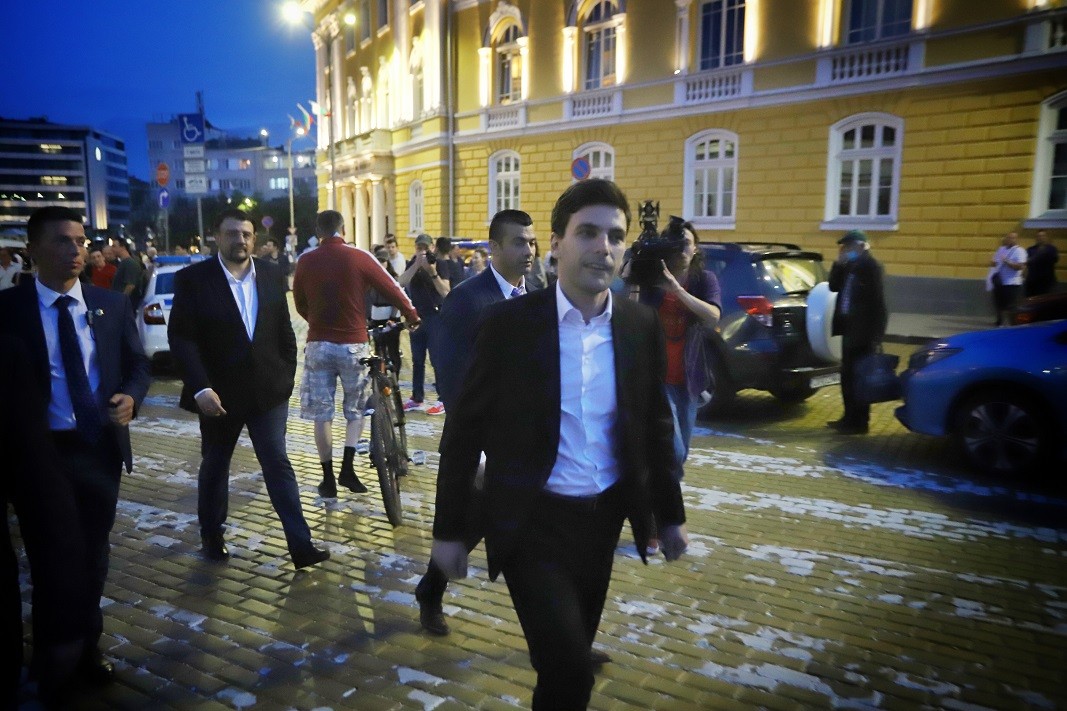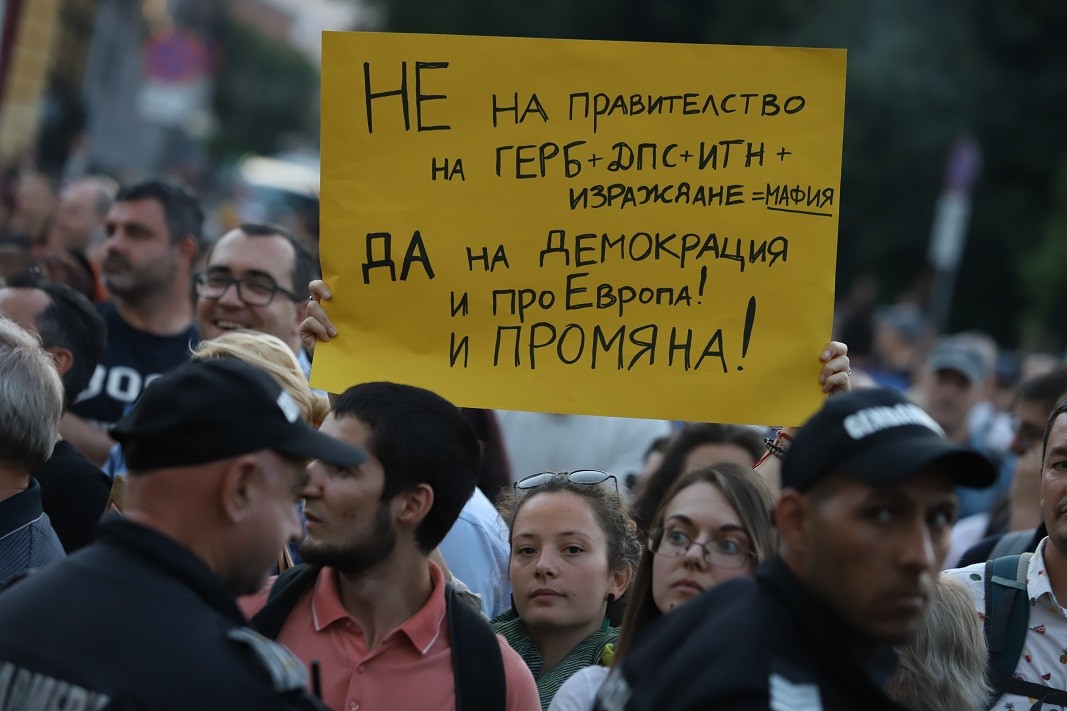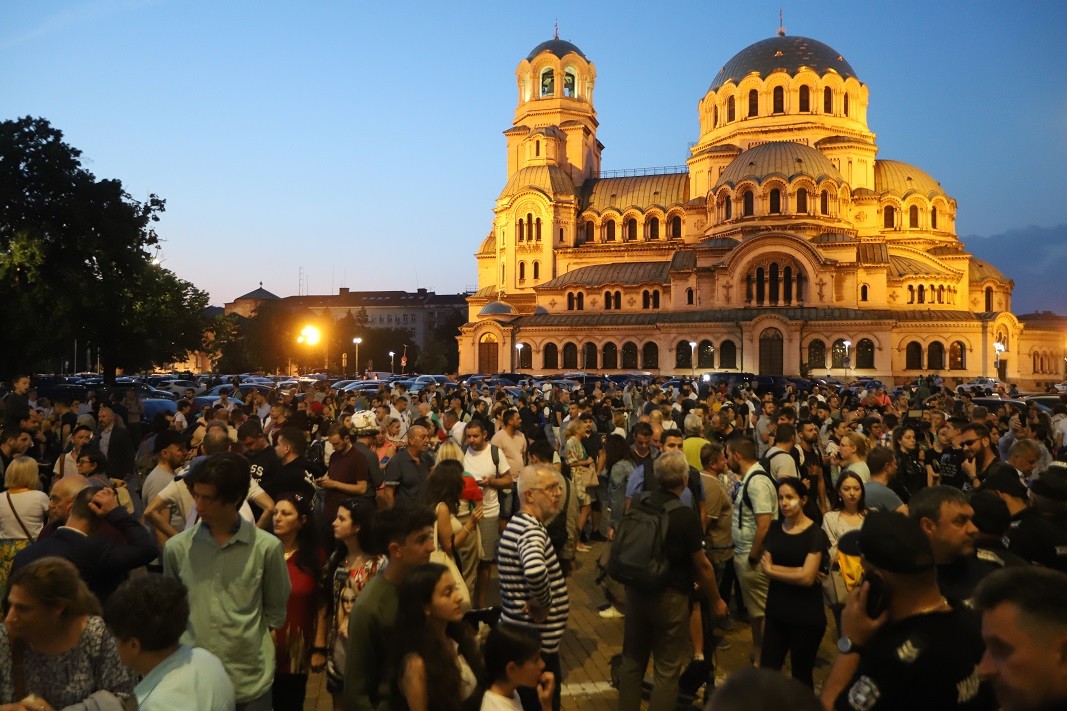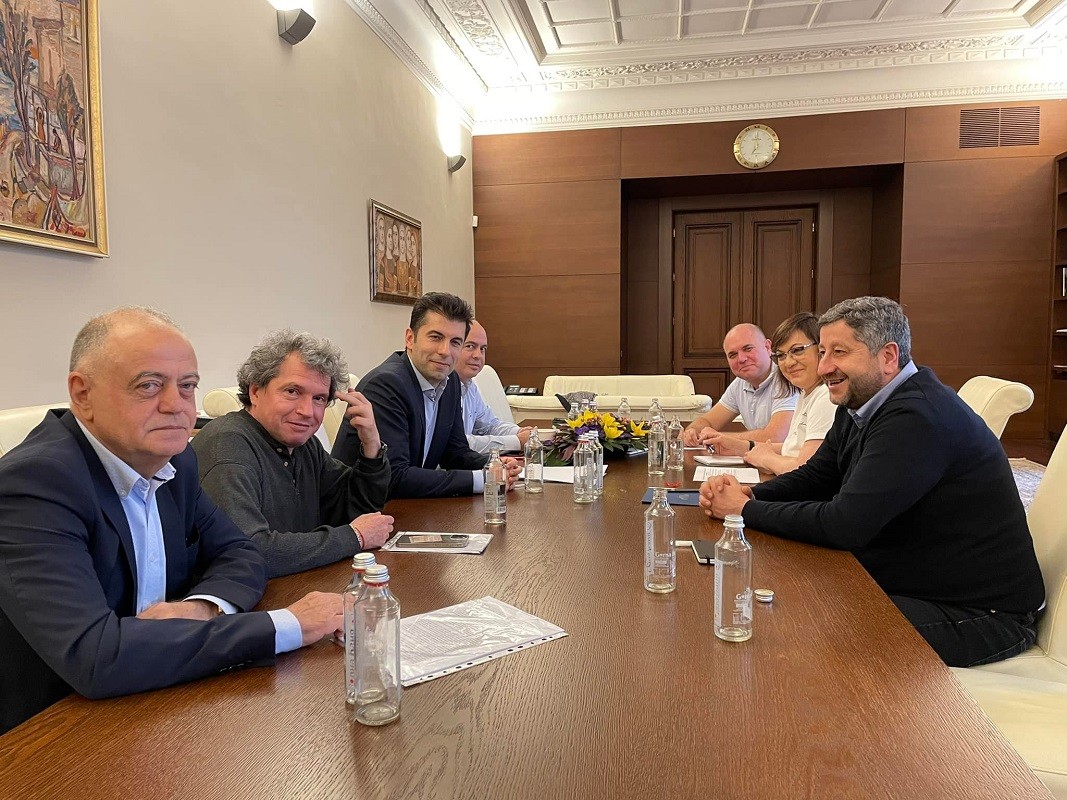The three opposition parties in Bulgarian parliament (GERB, the Movement for Rights and Freedoms and Vazrazhdane), plus There Is Such a People (ITN) – the party that broke away from the ruling coalition - ousted the President of the National Assembly Nikola Minchev by a majority of 125 votes, as a forewarning of what is going to happen in less than a week from now, when a motion of no confidence in the coalition government of Prime Minister Kiril Petkov is to be voted in plenary.

“What happened comes as no surprise to anyone, it was predetermined, just as the outcome of next week’s vote of no confidence in the government is predetermined. It was like a déjà vu of the events of 1992, when the Movement for Rights and Freedoms brought down the government of the then Union of Democratic Forces (SDS).” That is how Maria Stoykova, deputy editor-in-chief of Sega newspaper comments the vote in parliament that ousted National Assembly President Nikola Minchev from We Continue the Change.
The events in the National Assembly triggered a swift public reaction, with a big protest quickly gathering in front of parliament building in support of the head of parliament. The protest was organized on Facebook and went by the motto: “The mafia ousted Minchev: We must protect mafia-free Bulgaria”. The protest continued well into the night, with tensions occasionally flaring up.

The emotions raging in front of National Assembly building brought back the memory of the summer of 2020 when Bulgarians took to the streets to demand a change of government. What followed were elections for parliament – three times in a row – until a coalition government could be formed - the current coalition government on which so much hope is pinned for a change of the status quo. Whether the re-grouping in parliament is going to bring about elections for parliament one more time is something that only the future will show. The people protesting in the streets and squares, however, say they have had enough of the “outrages inside the National Assembly”. “This vote,” they say, “was not targeted against Nikola Minchev, it was a dress rehearsal for next week’s vote against the government, a test of whether the new majority is able to have its way. They tested it, and passed the test. Obviously, we have to get ready for elections once again.”
“The vote of no confidence is one of the steps that We Continue the Change must go through,” Prime Minister Kiril Petkov on his part said, addressing the protesters last night.

So how did state governance come to be “broken”?
According to political analyst Toncho Kraevski, the moment the ruling coalition had achieved its goal – to remove from power the previous government, a new fault line started opening up in the political domain.
“The situation in the public sphere, in the world changed completely, i.e. the differences that used to be a priority are no longer so relevant and others have emerged – the war in Ukraine, the energy crisis, the question of North Macedonia and the lifting of the veto – all of them things that could not have been discussed when the ruling coalition was being formed because no one could have known they would have such a powerful impact on society.”
According to Kraevski, the legislative initiative of what was until now the parliamentary majority did not find any meaningful expression. “They failed to formulate, in their legislative initiative, how they see the zero tolerance of corruption, except for electing people of integrity to the executive bodies. But the question arises: who are the people of integrity?”
Journalist Maria Stoykova points to lack of political experience as a reason for the breakup of the coalition:
“If they were more experienced as politicians, then maybe this coalition could have survived, because the bickering these past few months showed there had been no coalition discussion there. In this sense they should have made more efforts to pull the coalition together because there are far too many speculations “how we got here”, and it is difficult to separate truth from falsehood.”

The war in Ukraine was one more factor that played a role in this, altering the priorities of We Continue the Change and of There Is Such a People. The energy diversification of Bulgaria is this government’s biggest success, Maria Stoykova says and adds:
“And all of a sudden, just as Bulgaria had, at long last, decided to diversify its energy sources, this triggered a change in the attitude, and in the way the ITN was behaving. That is why I am very much afraid that when this cabinet falls, whatever may then follow, we shall go back to signing an agreement with Gazprom once again.”
The pivotal question of energy supplies seems to have receded to the background, with the policy pertaining to Bulgaria’s veto on the launch of EU accession negotiations with North Macedonia taking centre stage as the main reason for the breakup of the ruling coalition.
How things will play out is yet to be seen. According to the rules of organization and procedure of the National Assembly, the Vice President representing the biggest parliamentary group must act as acting President of the National Assembly, in this case that is Miroslav Ivanov from We Continue the Change. He must set the date for the debates on the motion of no confidence submitted. The last possible date for that is Wednesday, June 22.

Interviews by Diana Yankulova, Horizont channel, BNR
Compiled by Elena Karkalanova
Photos: BGNES
Nearly five months after the last early parliamentary elections in Bulgaria, the 51st National Assembly has "grown" by one party and is now formed by nine political formations. The Constitutional Court declared the election of 16 MPs illegal , and..
Georgi Kuzmov, who was removed from his position as mayor of the Sofia district of Oborishte, is returning to his post after winning the new elections with nearly 70% of the votes. At the end of last year, the Supreme Administrative Court..
Velichie party enters the 51 st National Assembly with 10 seats, the Central Election Commission (CEC) has decided following the ruling by the Constitutional Court which alters the results of the election for National Assembly held on 27 October,..

+359 2 9336 661
